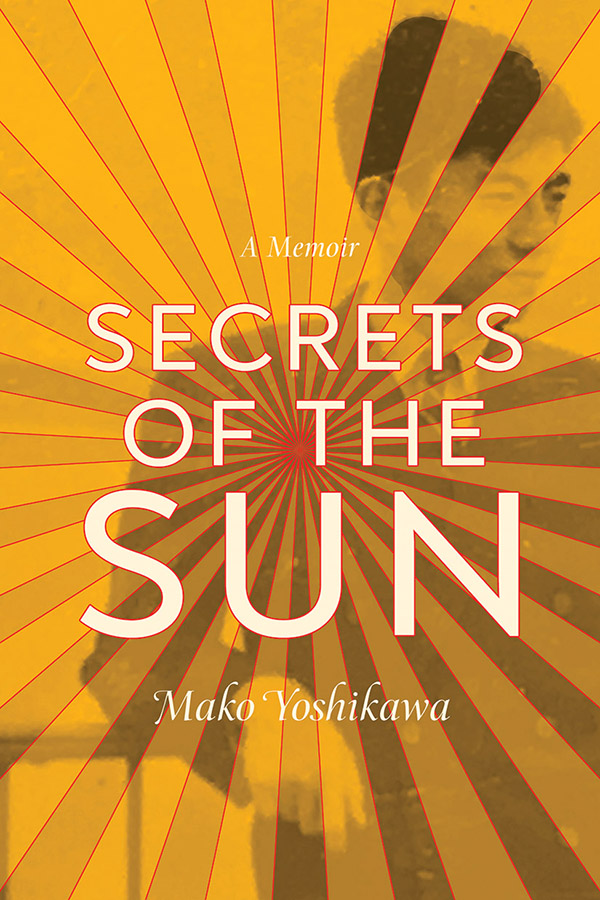
Written by Stephen Hong Sohn
Edited by Uttara Rangarajan
This one’s going to be a very short review of Mako Yoshikawa’s Secrets of the Sun. I managed to find a relatively affordable used copy of this one and wanted to give this book a shoutout. We reviewed one of Yoshikawa’s novels on AALF a long time ago, and I was really happy to see that she had published another full-length work. Let’s move to the marketing description: “Mako Yoshikawa’s father, Shoichi, was a man of contradictions. He grew up fabulously wealthy in prewar Japan but spent his final years living in squalor; he was a proper Japanese man who craved society’s approval yet cross-dressed; he was a brilliant Princeton University physicist and renowned nuclear fusion researcher, yet his career withered as his severe bipolar disorder tightened its grip. And despite his generosity and charisma, he was often violent and cruel toward those closest to him. Yoshikawa adored him, feared him, and eventually cut him out of her life, but after he died, she was driven to try to understand this extraordinarily complex man. In Secrets of the Sun, her search takes her through everything from the Asian American experience of racism to her father’s dedication to fusion energy research, from mental illness to the treatment of women in Japan, and more. Yoshikawa gradually discovers a life filled with secrets, searching until someone from her father’s past at last provides the missing piece in her knowledge: the story of his childhood. Secrets of the Sun is about a daughter’s mission to uncover her father’s secrets and to find closure in the shadow of genius, mental illness, and violence.”
I’ve slowly been making my way through a lot of Mad Creek titles, which is an imprint out of Ohio State University Press, and I’ve really loved them all. This one is no different despite being one of the most challenging, because Yoshikawa is truly working hard to find a way to understand her very difficult father who suffers from bipolar disorder. Despite the complicated feelings that Yoshikawa has for her father—and she indeed questions whether or not she has any truly deep feelings for him given their history—the extraordinary work of care is evident here, especially in the way that Yoshikawa works painstakingly to find out what might have driven her father to make some of the choices that he did. This investigative work will ultimately take her to Japan, where critical information from her father’s sister (her aunt) leads her to realize that she has not fully understood her his family background A stunning memoir that burns brightly and exposes the multifaceted contours of an Asian American family.
Buy the Book Here

